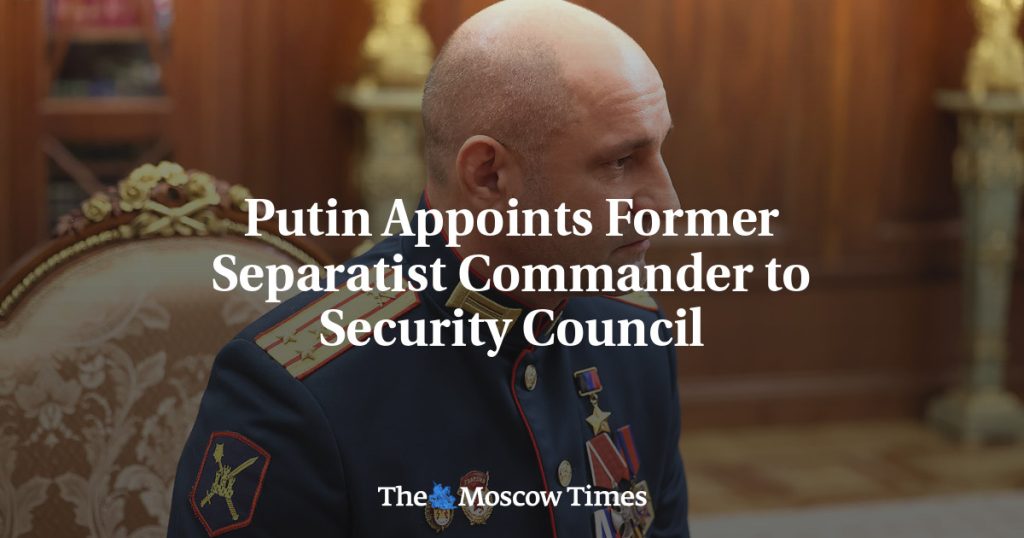President Vladimir Putin has appointed Lieutenant Colonel Artyom Zhoga, currently serving as the Kremlin’s envoy to the Urals Federal District, to Russia’s National Security Council. Zhoga, a former military officer from the Russian-occupied Donetsk region in eastern Ukraine, gained attention last year after publicly encouraging Putin to run for re-election in the 2025 presidential race. Recently, Putin selected Zhoga, a Ukraine war veteran, as his envoy to the Urals Federal District, a region crucial to Russia’s military-industrial sector.
Zhoga’s appointment as one of 21 non-permanent members of Russia’s Security Council places him in a key position overseeing national security and strategic policy. The council also includes 13 permanent members, such as leaders of major security agencies and high-ranking legislative and executive officials. As the chair of the Security Council, Putin leads the executive body, with former Defense Minister Sergei Shoigu as secretary and former President Dmitry Medvedev serving as deputy secretary. Experts view the Security Council as a powerful entity that signals major policy changes and resolves disputes among different agencies.
Of note is the fact that Zhoga is the most prominent Kremlin appointee to emerge from the “Time of Heroes” professional training program initiated after Putin’s commitment to elevate Ukraine war veterans as Russia’s “new elite.” This move underscores Putin’s focus on honoring and promoting those with experience in conflict zones like Ukraine. Zhoga’s background as a Ukraine war veteran likely played a significant role in his rise to this influential position within the Security Council and reflects a broader trend of recognizing and rewarding military personnel who have served in challenging environments.
Zhoga’s role within the Security Council signifies a strategic decision by Putin to include individuals with firsthand experience in conflict situations in key security positions. This move is in line with Putin’s broader vision of strengthening Russia’s national security apparatus and ensuring that those with practical knowledge and expertise in military matters have a voice in shaping the country’s strategic policies. Zhoga’s appointment, therefore, represents a broader effort to prioritize national security concerns and elevate individuals who have directly contributed to Russia’s military efforts in critical regions like Ukraine.
As a member of the Security Council, Zhoga will have the opportunity to influence and shape Russia’s national security and strategic policies. His background as a military officer with experience in conflict zones like eastern Ukraine equips him with valuable insights that can inform decision-making processes within the council. By appointing Zhoga to this position, Putin is demonstrating a commitment to leveraging the expertise of individuals like Zhoga who have firsthand experience in challenging military environments and can offer unique perspectives on security matters.
Overall, Zhoga’s appointment to the National Security Council highlights Putin’s strategy of prioritizing national security and personnel with military experience in conflict zones. By elevating individuals like Zhoga, who have served in challenging environments and demonstrated leadership qualities, Putin aims to strengthen Russia’s security apparatus and ensure that those with practical knowledge play a significant role in shaping the country’s strategic policies. Zhoga’s background as a Ukraine war veteran and his involvement in the “Time of Heroes” program underscore the importance of recognizing and rewarding military personnel for their contributions to Russia’s national security interests.














